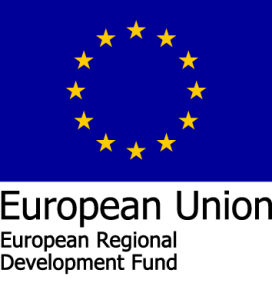by Mikko Tolonen
Providing qualitative understanding of historical phenomena and developing generic research methodologies with the help of digitised newspapers
The COMHIS project studies the change in public discourse in Europe and Finland between 1640 and 1910 as well as Finnish information production as a part of European development. The project uses as its source materials digitised newspapers and library catalogues. The quality of digitised newspapers is improving all the time and they are studied, for example, with the help of text-mining.
New initiative linking memory organisations and research
The multidisciplinary project considerably consolidates the cooperation between research and the National Library of Finland’s offering of research resources. COMHIS is a new initiative in the operation of memory organisations in the field of digital humanities; it has promoted the openness of science in a completely new way. The funding is granted by the Academy of Finland.
Digital Humanities is an emerging field combining humanities and social sciences with contemporary information and communication technologies. It applies computational methods to various types of source materials and data. Directly linked to this is “digital history” that can be identified as the main applied field of this project. While there is a tradition, for example, among corpus linguists to use computational methods, study of history has been slower to take up new approaches in a productive manner. The computational approach to history has rarely impacted on the core of historical research in such a way that those who have no original interest in digital humanities would pay attention. Yet, the potential for addressing the transformation of knowledge production and public discourse through new quantitative research methods is considerable and the overall methodological basis of the field is currently shaping up. In this way, the COMHIS project plays a crucial role in the formation of digital humanities research – and especially digital history – in Finland, but also in global context.
Project consortium of different disciplines
The consortium is based on the cooperation of four partners, The Faculty of Humanities at the University of Helsinki, the Departments of Cultural History and Information Technology at the University of Turku and the Centre for Preservation and Digitisation of the National Library of Finland. This brings together relevant complementary expertise on the research subject (eighteenth- and nineteenth-century history), methodology (computational sciences and language technology) and data (the preservation and enhancement of digital resources). The consortium establishes national collaboration in a key research area that is further linked with the very best international research centers via already existing collaborations.
Data-driven angle on qualitative key research question of understanding public discourse
The point of departure of the COMHIS project is to study the nature and quality of Finnish public discourse between 1640 and 1910. The objective is to reassess the scope, nature, development, and transnational connections of public discourse in Finland, 1640–1910. Two complementary approaches will be utilized, one based on the use of library catalogue metadata and the other based on the full text mining of all the digitized Finnish newspapers and journals published before 1910. In previous research, public discourse in Finland has been largely approached from the perspective of the breakthrough of the Finnish language, the role of elite discourse at the university, early Swedish-language newspapers, and book history. COMHIS combines all these perspectives, and further analyses how language barriers, elite culture and popular debate, text reuse as well as different publication channels interacted. Earlier historians have not been able to analyse, for example, the entire record of Finnish publications, including newspapers. The point of this undertaking is to begin to fill this gap with multidisciplinary collaboration and identify overlooked moments of transformation in Finnish public discourse.
The project is implemented through a combination of different tasks that jointly provide a systematic analysis of knowledge-production based on large-scale library catalogue metadata collections, and advanced full text mining of newspapers and journals. This analysis will yield a novel, data-driven angle on the qualitative key research question of how to understand public discourse in early modern Europe and particular areas (such as Finland) in their European context.
Since the key source materials of the project are digitised Finnish newspapers the Centre for Preservation and Digitisation of the National Library of Finland is an important partner for it. The newspaper materials digitised by the National Library of Finland up until 1910 are freely available through the digi.kansalliskirjasto.fi service. Such extensive materials as Finnish newspapers and journals do not exist in digitized form in many other European contexts. COMHIS thus has a unique opportunity to carry out pioneering work.
To conduct its research, COMHIS introduces the concept of open data analytical ecosystems, which represents a key methodological innovation in the field of digital humanities. This multidisciplinary project will have a profound and long-lasting academic impact, not only on qualitative understanding of historical phenomena, but also on generic research methodologies whose applicability extends beyond the scope of this project.
The author is a professor at the University of Helsinki, the Faculty of Humanities / The National Library of Finland
Project partners
Tenure 1.1.2016 to 31.12.2019 Financing
Organisation
|

